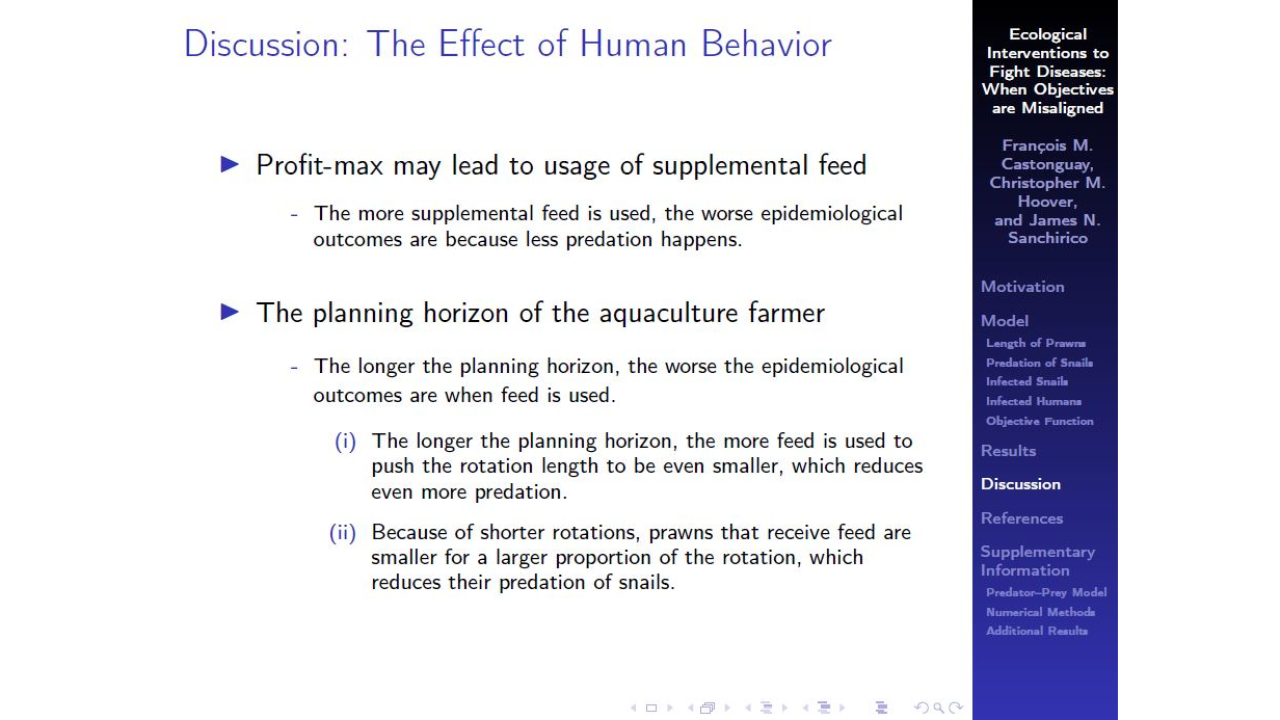
Lab Seminar - Ecological interventions to fight diseases: when objectives are misaligned
François Castonguay presented his research on ecological interventions on environmentally transmitted diseases (ETD). This is joint work with Jim Sanchirico and Chris Hoover (UCSF). Ecological interventions are nonpharmaceutical actions that individuals and communities can take to reduce disease transmission by considering the interactions among the different disease-carrying organisms and their environment. They are receiving increasing interest by both researchers and practitioners to prevent and manage environmentally transmitted diseases because of their potential to maintain disease burden under control in a decentralized way. When the main drivers of such intervention are the economic benefits derived from undertaking the activity, ecological interventions also have the potential to be sustainable. While the economic incentives are key in making such interventions viable, they can also have unintended consequences that hinder their public health purpose. In this study, François and coauthors investigate the consequences that profit-maximizing behavior has on the transmission of an environmentally transmitted disease, using schistosomiasis and prawn aquaculture as a case study. Freshwater prawns, a natural predator of the intermediate host snails, are a food source for local populations and maintain disease prevalence at low levels in the environment. They simulate the behavior of a profit-maximizing aquaculture farmer whose activity has the potential to create ancillary public health benefits, but whose decision-making concerning supplemental feeding can mitigate these same public health benefits. The results suggest that it may be necessary for policymakers to incentivize aquaculture farmers in order to reap any indirect public health benefits from their activity.